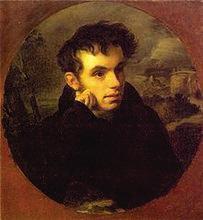
Zhukovski

Ryleyev
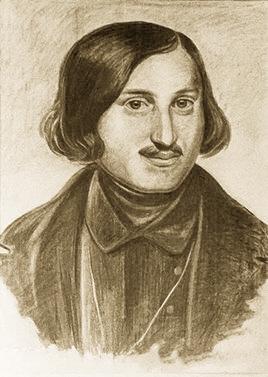
Gogol
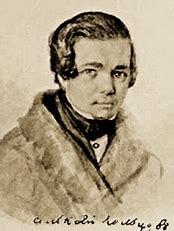
Koltzoff
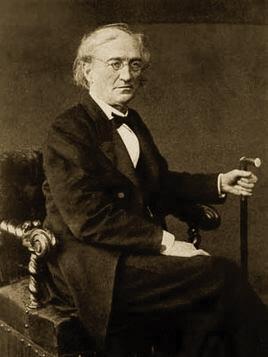
Chutchev
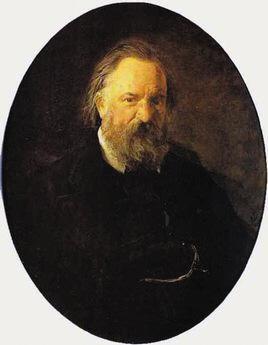
Herzen
Goncharov
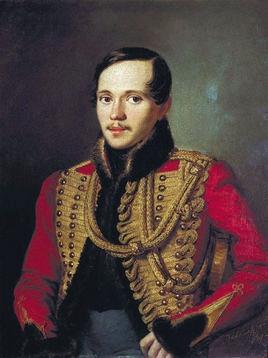
Lermontov
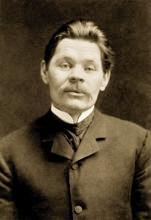
Gorky
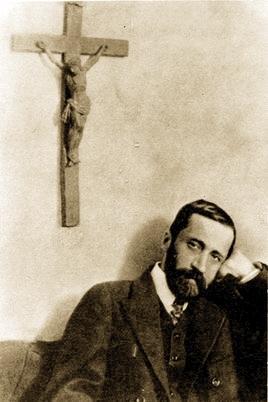
Merezhkovski
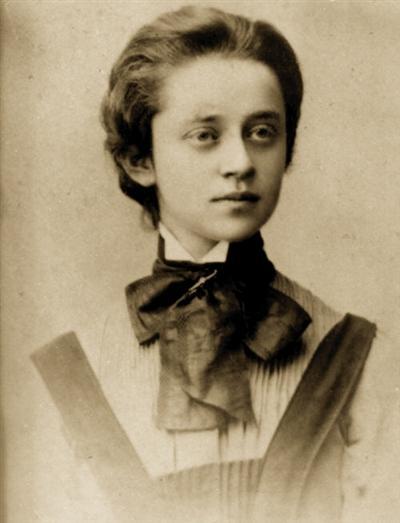
Gippius
Mandelstam
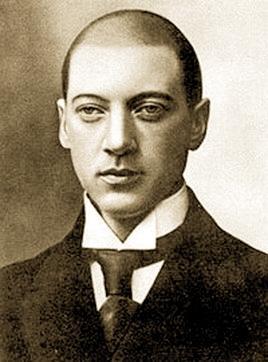
Gumilev
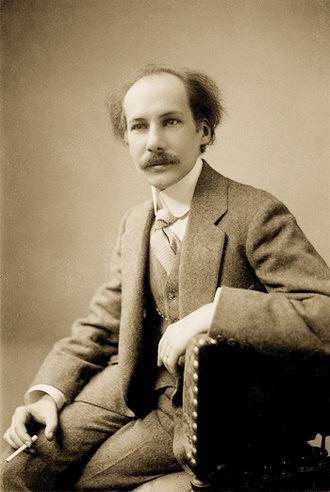
Andrey Bely
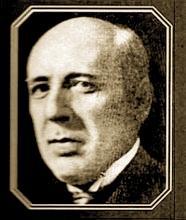
Sologub
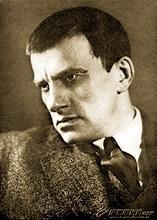
Mayakovsky
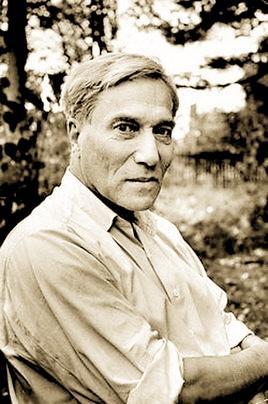
Pasternak
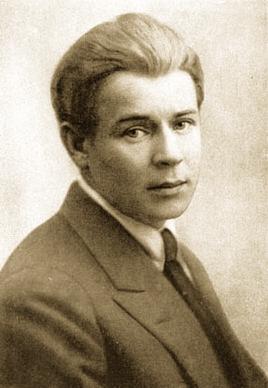
Yesenin
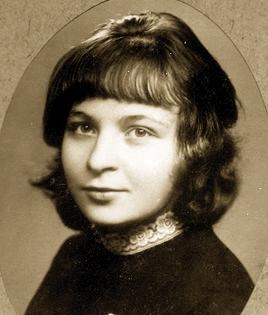
Tsvetayeva
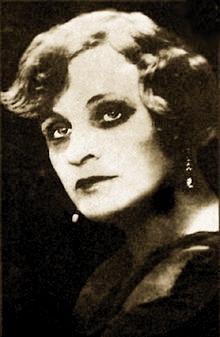
Teff
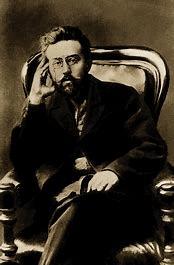
Arzhibasev
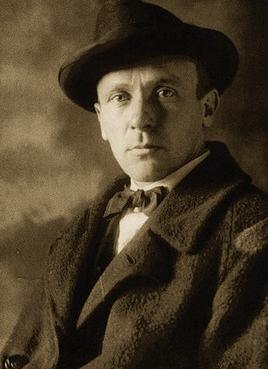
Bulgakov
In the history of Russian literature, there are two star-studded peak periods - "Golden Age" and "Silver Age".
From the 1910s to the 1930s, a group of poets represented by Pushkin created a large number of excellent poems. The history of literature called this era the "golden age" of Russian poetry. At that time, two poetic groups formed in Russia: the "Pushkin Poetry Circle" and the "Tutchev Pleiades". The former is represented by poets influenced by Pushkin, such as Lermontov and Balatinsky, and the Decembrist poetry group can also be included in it. The style is relatively strong, focusing on reality and emphasizing moral responsibility. The latter is represented by poets deeply influenced by Tyutchev (Tutchev is also a source poet, the most important representative of Russian philosophical poetry, and Pushkin can be regarded as twin peaks), advocating the pure aestheticism. Artistic tendency, the pursuit of philosophy, such as Vyazemsky, Khomyakov, Shevelyov, Yakubovich, Benediktov, etc. Along with poetry, novels and plays also enjoyed their golden age.
Later, the focus of Russian literature turned to the creation of novels. At the end of the 19th century and the beginning of the 20th century, roughly equivalent to the 1890s to the 1920s, there was another peak of poetry creation, accompanied by paintings, music, etc. The prosperity of many arts, many people use the "Silver Age" to describe the grand occasion at this time. During this period, schools of Symbolism, Acmeism, and Futurism gradually emerged in Russia. The pioneer of symbolism is the philosopher Solovyov, who founded the "philosophy of the unity of all things" system, advocating the combination of individualism and mysticism. Merezhkovsky and his wife Gippius are known as the first generation of symbolists. The Acme School was born out of symbolism, and its initiators were a group of young poets headed by Gumilev and Gorodetsky. It was originally a "poet workshop" society in Petersburg in 1911, and they wanted to go beyond the limitations of symbolism. , against the obsession with the mysterious transcendental world. Futurism was influenced by the Italian poet Marinetti and originated from the futurist group founded by Mayakovsky and others in the 1910s, while Pasternak belonged to another futurist group. The artistic pursuit of the Russian Futurists inherently contained revolutionary factors. Imagist poets were also active in the Silver Age, represented by Yesenin. In addition, there are Bunin, Khodasevich and Tsvetaeva who are free from other schools. At the end of the 1920s, as Blok committed suicide, Gumilyov was executed, Pasternak and others transformed, some writers emigrated abroad, and the Silver Age came to an end.
It should be pointed out that the above classification of poetry genres is only for researchers and readers to identify poets, not a strict classification of poetry systems. Especially for readers, the way to grasp the poet's writing style and enter the core of poetry still relies on intuition and experience, the most direct ways of feeling.
golden age
Zhukovsky (1783-1852)
Russian romantic poet. The poetry world where classicism occupies the mainstream has opened up a unique path for Russian poetry. The critic Belinsky believes that Zhukovsky is the "Columbus" who discovered the new America of poetry, "Without Zhukovsky, there would be no Pushkin."
Ryleyev (1795-1826)
Russian poet, publisher, and the most outstanding representative of Decembrist literature. In 1820, he published the poem "To the Favorite", alluding to the tsar's confidant Arakcheyev, calling him "a treacherous and sycophant under the autocratic rule", which shocked the society. Ryleyev's political activities and literary creation had a profound influence on later generations. The poet Ogarev once called him "the guiding star".
Pushkin (1799-1837)
Russia's most influential poet in the world, known as "the father of Russian literature", "the sun of Russian poetry", and the founder of modern Russian literature. His main works include the poetic novel "Evgeny Onegin" and the novel "The Captain's Daughter".
Tyutchev (1803-1873)
Russian lyric poet, together with Pushkin and Lermontov, is called "the three major Russian poets in the 19th century".
Koltzoff (1809-1842)
In the history of Russian poetry, Korzov occupies a special place, he is the first rural poet in Russia.
Gogol (1809-1852)
The founder of Russian realist literature and the founder of the naturalist school of Russian literature. His works, in conjunction with Pushkin, laid the foundations of Russian critical realist literature in the 19th century. His contribution to the development of Russian novel art is particularly significant. Writers such as Turgenev, Goncharov, and Dostoevsky have all been greatly influenced by Gogol. Gogol's influence on Chinese writers cannot be ignored. Lu Xun, Zhang Tianyi, Sha Ting, Ai Wu, Lao She, Zhao Shuli, Sun Li and other modern writers have all benefited from Gogol's creation.
Herzen (1812-1870)
Russian thinker and writer. Gorky once said that Herzen alone "represents an entire field, a country saturated with astonishing ideas." "Book from the Other Shore" is an important work in the history of Russian thought, and its status is no less than another book "Past Events and Thoughts" by Herzen.
Goncharov (1812-1891)
One of the most famous Russian critical realist writers, his novels occupy an important position in the history of Russian literature in the 19th century. "Oblomov" is his most famous work.
Lermontov (1814-1841)
Another great Russian poet after Pushkin. He once angrily wrote the poem "Death of the Poet", bluntly stating that the culprit who killed Pushkin was the upper class of Russia, so he was exiled to the Caucasus. 1839-1841 completed the novel "Contemporary Heroes". Lermontov's poems are haunted by a sense of melancholy and loneliness. Like Pushkin, he was killed in a duel.
Turgenev (1818-1883)
The first Russian novelist with full spirit of realism and proficient technique of realism. He is famous for short stories and essays such as "Hunter's Notes", "Luo Ting" and "Father and Son". His appearance ended the "transition" period of Russian literature from romanticism to realism. It was he who made Russian literature more closely related to Western European literature, and Russian literature began to be pushed to the world.
Dostoevsky (1821-1881)
Zweig once said, "There are two people who can have a profound impact on the literature and culture of our time, one is Kierkegaard, the originator of existentialism, and the other is the Russian novelist Dostoevs. Base." His "Notes from Underground", "Crime and Punishment", "Idiot", "The Brothers Karamazov", "Demons" and other works have influenced countless writers.
Leo Tolstoy (1828-1910)
Tolstoy created epic novels, such long masterpieces as "Anna Karenina", "War and Peace" and "Resurrection" established his important position in the history of Russian literature. Gorky said: "Those who do not know Tolstoy cannot know Russia."
Chekhov (1860-1904)
The last peak of Russia's Golden Age. Russia's world-class short story master and outstanding playwright, together with French writer Maupassant and American writer O. Henry, is known as "the world's three major short story writers". Chekhov has created a lyrical psychological novel with a unique style, concise words and exquisite art, such as "Fanka", "The Man in a Set", "The Death of a Little Civil Servant" and so on. Literary critics in the world like to describe those excellent short story writers as "Chekhov" in a certain way.
silver age
●Symbolism
first generation
Merezhkovsky (1865-1941)
One of the most influential Russian writers, poets, and critics from the end of the 19th century to the beginning of the 20th century, and one of the founders of Russian literary symbolism. His article "On the Causes of the Decline of Modern Russian Literature and the New School" (1893) is a literary manifesto of Russian symbolism and an important milestone of Russian modernism.
Gippius (1869-1945)
One of the most individual and religious female poets in Russia's Silver Age, and another poetess called Sappho. Her creations are praised as "with a full 15-year history of lyrical modernism", "as if, with condensed and powerful language, with the help of clear and sensitive images, she has outlined the entire experience of a modern soul" .
Other representative writers include Minsky and others.
second generation
Sologub (1863-1927)
Lu Xun, one of the most artistically accomplished modernist writers in Russia's Silver Age, called Sologub "the praiser of death", but his stories are not negative and dark, but radiant in absurdity and fanaticism.
Other representative writers include Bryusov, Balmont, Annensky and so on.
Third Generation
Andrei Bely (1880-1934)
Symbolist poet and novelist. Representative works include the long poem "Symphony", the novels "Silver Dove" and "Petersburg". In the West, Andrei Bely is regarded as the most outstanding genius among Russian novelists in the 20th century. Nabokov combined his works "Peterburg" with "Remembrance of Things Past", "Ulysses" and "The Metamorphosis". Listed as his most admired four western masterpieces in the 20th century.
Other representative writers include V. Ivanov, Alexander Blok, Voloshin and so on.
●Akme Pie
first generation
Gumilev (1886-1921)
The leader of the Akme faction, an outstanding Russian poet and poetry critic in the early 20th century, and Akhmatova's first husband. He is the author of the famous work "Pearl", eight collections of poems including "Romantic Flower" and "Exotic Sky", and a series of poem reviews, the most famous of which is the series of poems "Azure Star". Some people commented that he is the most talented poet in Russia after Pushkin. One of his famous sayings is: "You should not write when you 'may', but when you must'. The word 'possible' should be written off in poetry research." He devoted himself to poetry creation to the point of ecstasy, Its high concentration of dedication has influenced a generation of youth.
Other representative writers include Gorodecki and others.
second generation
Akhmatova (1889-1966)
Originally named Anna Andreevna Gorenko. A representative poet of Russia's Silver Age, known as the "Moon of Russian Poetry". Her poems embody the beautiful, fresh, concise and harmonious tradition of Russian classical poetry, and "Requiem" is one of her most important works.
Mandelstam (1891-1938)
The most outstanding poet, essayist and poetic theorist of Russia's Silver Age. His works were banned for a long time, and then gradually attracted the attention of the world poetry circle. He is the author of a collection of poems "Stone", "Elegy" and "Selected Poems", a collection of essays "Egyptian Stamps", a collection of literary essays "Words and Culture", etc.
Other representative writers include Kuzmin and Cenkiewicz.
●Futurism
Mayakovsky
(1893-1930)
One of the most famous poets in the world poetry world in the 20th century, his poems have loud tones, strange and jumpy images, full of powerful life instinct and Nietzsche-style extremist passion. Among the futurist poets, Mayakovsky can be called "the most quoted but the least understood", and he is also a poet who is very familiar to Chinese readers but also deeply misunderstood.
Pasternak
(1890-1960)
A poet and novelist who still insists on individual writing under the mainstream ideology. The main collections of poems include Gemini Star in the Cloud and Mist, Life Is My Sister, etc. The novel "Doctor Zhivago" is his most famous work. After breaking away from futurism.
Other representative writers include Khlebnikov, Cruchonekh, Burliuk, Kamensky, Severyanin, Ignatiev and so on.
●Imagism
Yesenin
(1895-1925)
The Russian idyllic poet with strong romantic temperament is known as "the purest Russian poet" and "the last rural poet". He is also called "peasant poetry" with Kliuyev. He pays attention to the painting beauty of poetry, and is good at using color dots to express his complex and changeable emotional feelings in his creation.
●Free from all schools of poetry
Ivan Bunin
(1870-1953)
Russia's first Nobel Prize winner in literature. Although he is well-known in the literary world as a novelist, such as his representative novel "Arsenyev's Life", his poems are clear in language, sincere in emotion, and exquisite in conception, and often include a touch of sadness in the description of tranquil natural scenery. Don't have a subtle taste.
Hodasevich
(1886-1939)
The representative poet of the first wave of diaspora literature in Russia. Gorky called him the best poet of the Silver Age, and Nabokov claimed that he was "the greatest poet of our time" because of his poems. It has been highly rated.
Tsvetayeva
(1892-1941)
Famous Russian poet, essayist and playwright. Her poems take life and death, love and art, times and motherland as themes, occupy an important position in the history of world literature in the 20th century, and are considered the greatest Russian poet of the 20th century.
●Others: Other than poetry
Gorky (1868-1936)
The founder of Soviet literature, his works "Childhood", "In the World" and "My University" have far-reaching influence in China.
Andreyev (1871-1919)
Unique Russian novelist. Lu Xun said that "his writings are mysterious and deep, and they are in a family of their own". He is the author of "The Life of Vasily Fevijski", "Seven Hanged Men" and so on.
Teff (1872-1952)
Famous for his short stories, his style of writing is humorous, pungent and concise. Among the writers of the Silver Age, Tai Fei is not well known to Chinese readers, but she has a high reputation in Russia.
Arzhibasev (1878-1927)
One of the most influential Russian novelists of the Silver Age. A writer who has ghosts of Tolstoy, Dostoevsky and Chekhov. Lu Xun commented on him: "He is a typical representative writer of emerging Russian literature. His genre is realism, and his expression is so profound that he has reached the extreme among his peers."
Averchenko (1880-1925)
Russian writer, journalist, publisher. Has the title of "King of Russian Comedy".
Zamyatin (1884-1937)
A Russian satirist in the Silver Age, famous for his unique style of folk oral narrative style and humorous and satirical style. His work "We" is the first dystopian novel, and together with "Brave New World" and "1984", it is also called the dystopian literary trilogy.
Bulgakov (1891-1940)
An important novelist in the Silver Age, recognized by the world as a classic writer of Russian literature in the 20th century. At the same time, it is also considered to be the originator of magic realism to a certain extent. "The Master and Marguerite" is his most important novel.
Ehrenburg (1891-1967)
Russian Jewish writer. The novella "Thawing" started the trend of Thawing literature, and "People·Time·Life" is known as the pioneering masterpiece of Russian "Thawing Literature" and "European literary epic".
Shklovsky (1893-1984)
He is not only an outstanding literary scientist, but also a thinker in the true sense. The masterpiece "Zoo" consists of 34 love letters, and is a novel full of metaphors and associations.
Zoshchenko (1895-1958)
Russian humorist satirist, member of the literary group "The Brothers Serapion".
Andrei Platonov (1899-1951)
A unique phenomenon in the history of Russian literature in the 20th century. The writing style is sharp and has strong penetrating power.
Poplavsky (1903-1935)
One of the most famous non-mainstream poets in Russia's post-silver age, he later lived in Paris, France. He inherited the silver age's ability to control language and sentences, and brought the concept of exploration to the extreme.
Daniel Harms (1906-1942)
He is considered one of the pioneers of the Absurd for his play "Elizabeth Bam". For a long period of time, his works circulated in the form of manuscripts. He always uses unexpected language to hide the world under the absurd appearance and reveal the universal truth.
Editing/Beijing News reporter Yang Siqi
Articles are uploaded by users and are for non-commercial browsing only. Posted by: Lomu, please indicate the source: https://www.daogebangong.com/en/articles/detail/Genealogy%20of%20Russian%20Literature%20Golden%20Age%20and%20Silver%20Age.html

 支付宝扫一扫
支付宝扫一扫 
评论列表(196条)
测试